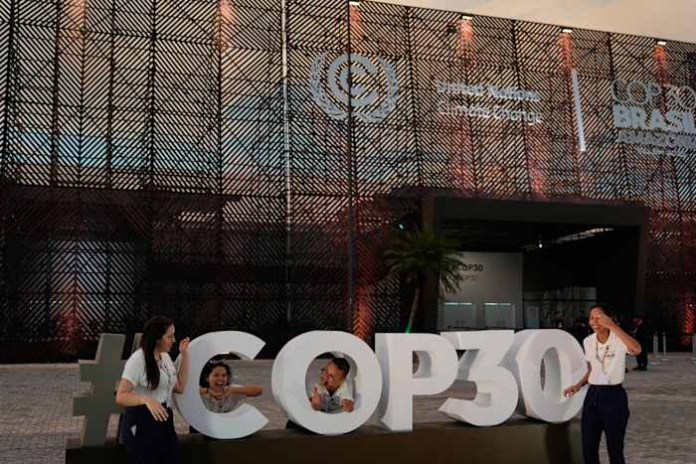BELEM – U.N. climate negotiations were expected to begin Monday at a meeting on the edge of the Brazilian Amazon, with leaders pushing for urgency, cooperation and acceleration after more than 30 years fighting to curb global warming by drastically reducing the carbon pollution that causes it.
André Corrêa do Lago, president of this year’s conference, known as COP30, emphasized that negotiators engage in “mutirão,” a Brazilian word derived from an Indigenous word that refers to a group uniting to work on a shared task.
“Either we decide to change by choice, together, or we will be imposed change by tragedy,” do Lago wrote in his letter to negotiators Sunday. “We can change. But we must do it together.”
Complicating the calls for togetherness is the United States. The Trump administration did not send high-level negotiators to the talks and is withdrawing for the second time from the 10-year-old Paris Agreement, which is being celebrated as a partial achievement here in Belem.
The United States has put more heat-trapping carbon dioxide into the air from the burning of coal, oil and natural gas than any other country. China is the No. 1 carbon polluter now, but because carbon dioxide stays in the air for at least a century, more of it was made in the U.S.
“I think the environment we are in, the geopolitical landscape, is particularly challenging,



